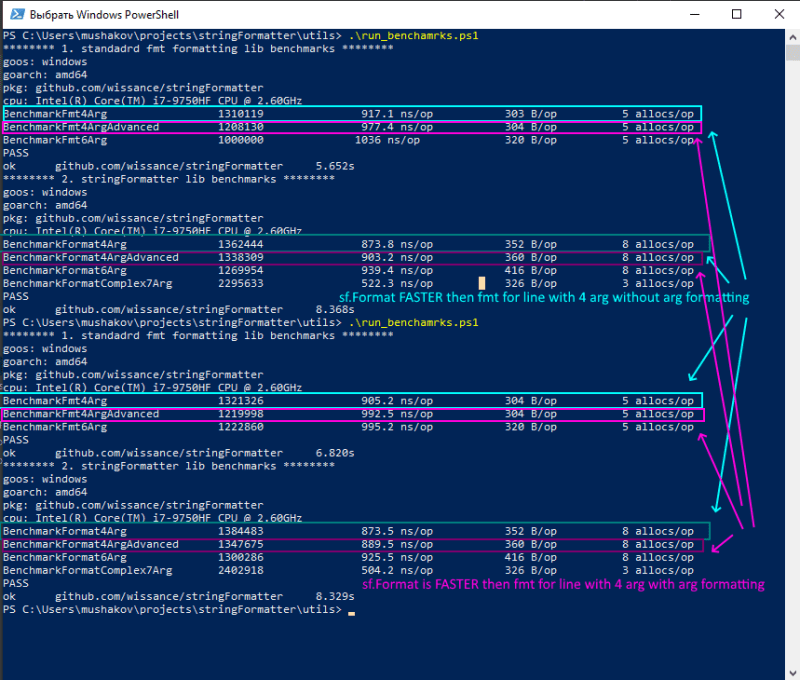Format a Text in Go Better Than FMT
There is one more text formatting utility/lib with all FMT features, and this library processes text faster, which, in some cases, could be important.
Join the DZone community and get the full member experience.
Join For FreeLooking at the article title, we should clarify what we mean by better and what text formatting is. Let's start with the former. Text formatting is an important part of programming; prepared text is used in the following tasks:
- Description/result of some operations
- Detailed log
- As a query for data selection in other systems
- And in many other fields. Better means that
sf(wissance.StringFormatter) has features thatfmthasn't (see Chapter 1 to see our text formatting approach).
1. What Can Do sf aka Wissance.stringformatter
In our earlier article, we were writing about sf convenience (convenience is a thing that is subjective to humans; here, I mean convenience based on my own background). But briefly, it is more convenient to format text like:
userNews = stringFormatter.Format("Hi \"{0}\", see latest news: {1}", "john doe", "1. You won 1M$ in a lottery, please give us your VISA/MS card data to receive money.")
Rather than:
userNews = fmt.Sprintf("Hi \"%s\", see latest news: %s", "john doe", "1. You won 1M$ in a lottery, please give us your VISA/MS card data to receive money.")
Until version 1.2.0 sf was unable to make more precise argument formatting (i.e., use different number notation: bin, hex), starting with 1.2.0 we could do almost all that fmt supports:
- Bin number formatting:
{0:B}, 15 outputs ->1111{0:B8}, 15 outputs ->00001111
- Hex number formatting
{0:X}, 250 outputs ->fa{0:X4}, 250 outputs ->00fa
- Oct number formatting
{0:o}, 11 outputs ->14
- Float point number formatting
{0:E2}, 191.0478 outputs ->1.91e+02{0:F}, 10.4567890 outputs ->10.456789{0:F4}, 10.4567890 outputs ->10.4568{0:F8}, 10.4567890 outputs ->10.45678900
- Percentage output
{0:P100}, 12 outputs ->12%
sf has two string format methods: Format and FormatComplex. The latter also allows passing argument formatting like for Format method.
Let's consider a minimal example:
- We should build text using the following format
"Today tempearture is {temp}, humidity is {hum}where{temp}and{hum}should be replaced with actual sensor values. - We would like to specify
{temp}and{hum}output, i.e.,{temp}should have four digits after the dot, and{hum}must be outputted in percentages. After analyzing these requirements, we modified our template as follows:"Today tempearture is {temp:F4}, humidity is {hum:P100}". - Passing
12.3456and60like this:
sf.FormatComplex("Today tempearture is {temp:F4}, humidity is {hum:P100}", map[string]any {"temp":12.3456, "hum":60})
More examples could be found in a FormatComplex unit test, see in the repository and below:
func TestFormatComplexWithArgFormatting(t *testing.T) { for name, test := range map[string]struct { template string args map[string]any expected string }{ "numeric_test_1": { template: "This is the text with an only number formatting: scientific - {mass} / {mass : e2}", args: map[string]any{"mass": 191.0784}, expected: "This is the text with an only number formatting: scientific - 191.0784 / 1.91e+02", }, "numeric_test_2": { template: "This is the text with an only number formatting: binary - {bin:B} / {bin : B8}, hexadecimal - {hex:X} / {hex : X4}", args: map[string]any{"bin": 15, "hex": 250}, expected: "This is the text with an only number formatting: binary - 1111 / 00001111, hexadecimal - fa / 00fa", }, "numeric_test_3": { template: "This is the text with an only number formatting: decimal - {float:F} / {float : F4} / {float:F8}", args: map[string]any{"float": 10.5467890}, expected: "This is the text with an only number formatting: decimal - 10.546789 / 10.5468 / 10.54678900", }, } { t.Run(name, func(t *testing.T) { assert.Equal(t, test.expected, stringFormatter.FormatComplex(test.template, test.args)) }) }
}
It is clear that we've got convenient (for people with C#, Python background) library for text formatting. But we have another advantage: performance, sf makes formatting **FASTER than fmt**.
2. Performance Benefits
There is one more important thing that could distinguish a sf library: it has performance advances, both in formatting cases with argument format specifications and without them. But FormatComplex is twice faster than fmt, see picture below with the results:
3. Conclusion
Today, we could say that there is one more text formatting utility/lib with all fmt features, and this library processes text faster, which in some cases could be important. Please give us a star on GitHub and subscribe.
Published at DZone with permission of Michael Ushakov. See the original article here.
Opinions expressed by DZone contributors are their own.


Comments